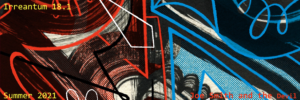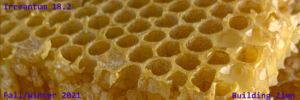.
Each year, the small magazines and presses of America submit their top works for Pushcart Prize consideration. This year, Irreantum is proud to announce we have nominated the following six works for Pushcarts.
Before we get to them, however, some observations.
First, all three 2021 issues are represented in our nominations.
Second, we are nominating three poems, two short stories (one in the form of drama), and an essay.
Third, it was not easy to decide on a top six. Done a week earlier or later, we may well have arrived at a different list. Much great work appeared in Irreantum this year and we commend it all to your attention.
Now, onto the nominees:
from 17.2: Hope & Healing
- New Every Morning
- Short poems need to have a clarity of intention if they are to navigate imagery and ambiguity as do longer poems. Watch Matthew J. Andrews accomplishes this in just six lines and a bit of snow.
- Collect for a Late-Winter Gulp
- Perhaps it is strange that an issue dedicated to hope and healing included a poem addressing the New Testament’s most famous demon(s), but Tyler Chadwick’s poetic lens has always shown us the world askew and anew.
from 18.1: Joe Smith & the Devil
- Just Phantoms
- Todd Robert Petersen’s sequel to Parley P. Pratt’s seminal work slides away from the jokey comedy of the original and into something much more deeply felt. (Sadly, David Habben’s visual accompaniment did not join the story in its journey through U.S. Mail, but you can still enjoy their marriage at Irreantum.)
from 18.2 Building Zion
- The Reclamation of the Provo River
- I’ve seen plenty of poets play with shape but only a few poems succeed in marrying shape and theme as well as Jeanine Bee does here. The form of the poem has a near-definitional connection to its message.
- Home, Endings, and the New York City Sidewalk
- This issue was filled with astute and precise observations of instance and place and family and home, but Rachel Rueckert’s essay about leaving Manhattan collided emotion after emotion into that singularly human moment: moving forward.
- As Close to the End as Possible
- This short story takes place in the near future—and at the end. JSP Jacobs introduces us to a main character both hapless and strong as he accepts that greatest of gifts, his own agency. And just in the nick of time. Next time his luck might be more like Lichtenstein’s.



